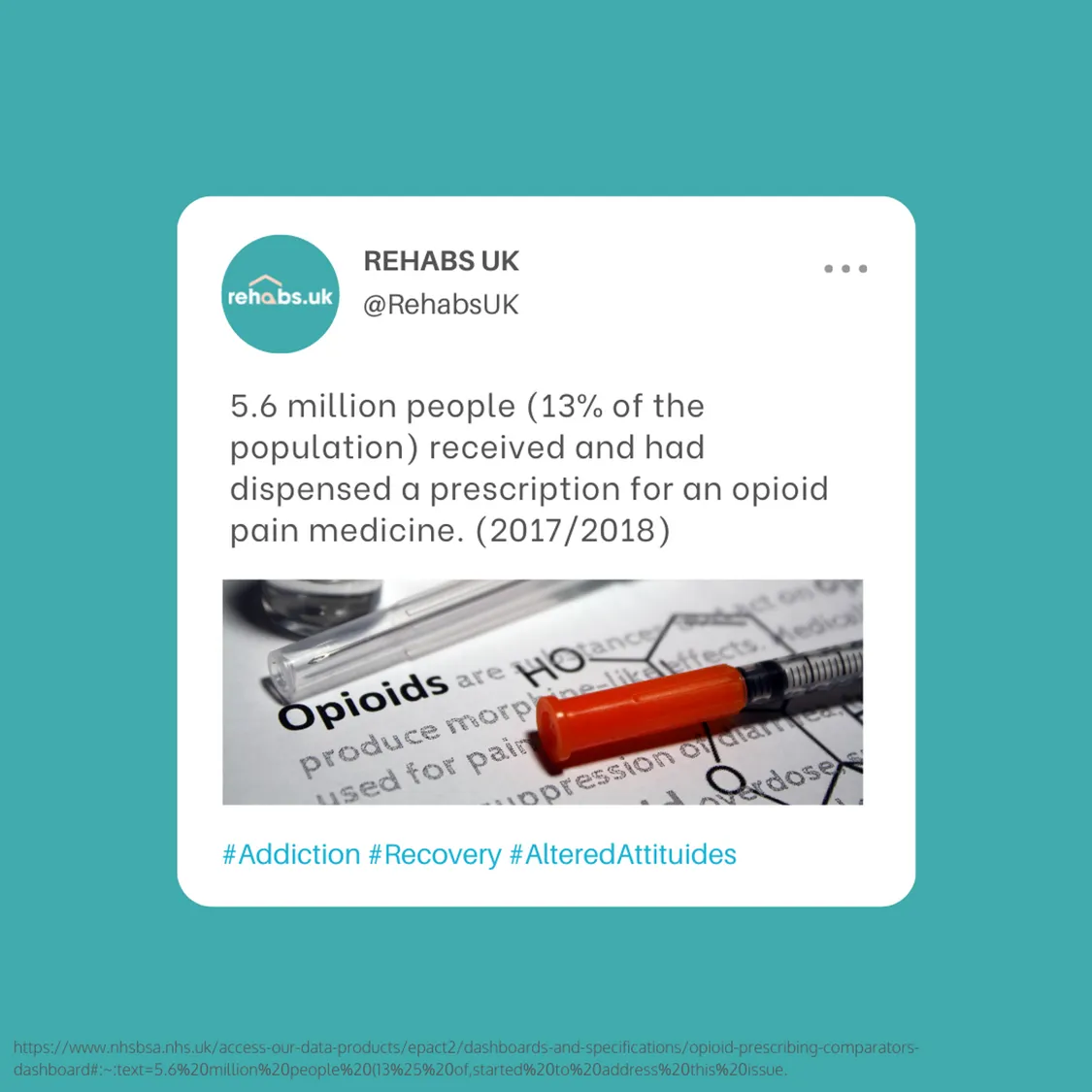05 Feb 2024
How has opioid use evolved in the UK in recent years? How does this compare to other nations? And, crucially, what is being done, or can be done, to address this crisis at both the government and individual levels?
Opioids in the UK
UK Opioid Statistics
Let's delve into the current situation of opioid use in the UK. According to the latest statistics, the prevalence of opioid use has seen a concerning uptick.
With an increase in Prescription Drug dependency, understanding The Real ‘Gateway Drugs’ in the UK is important as well as understanding the most recent statistics.
UK Opioid Use Compared to Other Nations
How does the UK fare when compared to other nations in terms of opioid use?
The UK consumed on average 1353 morphine milligram equivalents (MMEs) per 1000 inhabitants per day in 2019, compared to 1104 in Germany, 1101 in the US, and 1039 in Canada.
What is the Most Common Opioid in the UK?
The most common opioids in the UK. This information will serve as a foundation for understanding the specific challenges associated with prevalent opioids, such as fentanyl addiction and heroin addiction.
The most widely prescribed opioid is tramadol, however, of people reporting musculoskeletal pain, 47% receive codeine, or one of its analogues, co-codamol or co-dydramol. Oxycontin was once commonly used to manage severe pain; however, due to concerns about misuse, prescribing practices have become stricter, leading some individuals to turn to online sources to obtain the drug.

What is the Opioid Prescribing Rate in the UK?
Understanding the prescribing landscape is key to addressing the opioid crisis.
- 5.6 million people (13% of the population) received and had dispensed a prescription for an opioid pain medicine.
- The latest data shows that in under three years the number of opioid painkillers prescribed has fallen by 8%
- The numbers of benzodiazepines and sleeping pills (z-drugs) prescribed in England has also fallen by 170,000 (13.9%) and 95,000 (10.2%) respectively since the NHS led the implementation of key recommendations outlined in a 2019 review by Public Health England.
Combating the Opioid Crisis Nationally
Government and NHS Initiatives The Government and the NHS have taken some steps to combating the Opioid crisis, including:
- Finding alternative treatments
- Reducing opioid prescriptions by almost half a million in four years
- “Now the NHS is supporting integrated care boards, community health services, public health teams and primary care networks to create personalised and innovative support for patients who have used addictive drugs or suffer from a condition that would have historically seen them prescribed such a drug, to better manage their long-term physical and mental health.”
Dealing with Opioid Addiction
There are a range of different treatment options available for opioid addiction. From medical interventions to holistic approaches, understanding the available choices is crucial for those grappling with addiction.
The Care Quality Commission (CQC),recognising in a 2017 report that opioid-related death was the third most common cause of preventable death for 15 – 49-year-olds, asked that treatment be safe, effective, caring, responsive, and well-led.
CBT therapy, home detox and on-going support are all options available to anyone struggling with an opioid addiction.
Seek Professional Help
Concluding on an important note, our experts advise that the first step in dealing with opioid addiction should always involve consultation with medical professionals or specialists. For those seeking help, organisations like Rehabs UK can offer guidance and support. If you or someone you know is struggling with opioid addiction, don't hesitate to reach out.
